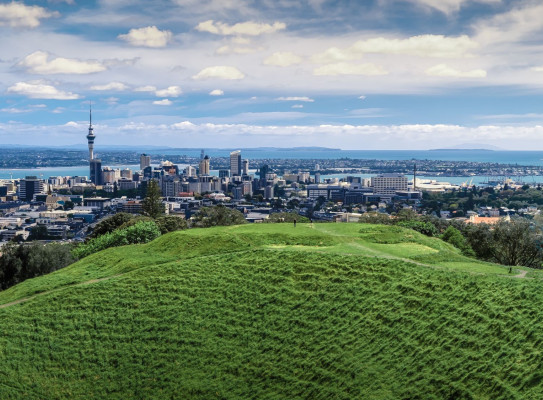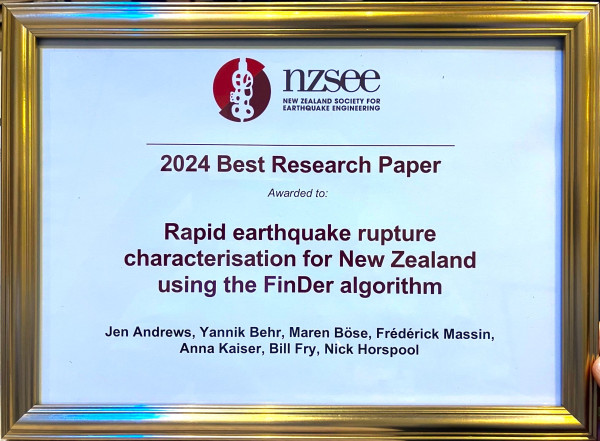RCET wins Best Research Paper at NZ Society for Earthquake Engineering conference

The New Zealand Society for Earthquake Engineering (NZSEE) has awarded Best Research Paper to GNS Science’s Rapid Characterisation of Earthquake and Tsunami (RCET) programme for its paper on Rapid Earthquake Rupture Characterisation for New Zealand Using the FinDer Algorithm.
The paper presented at this year’s NZSEE Annual Technical Conference explores the adaption of FinDer as a tool for earthquake response in New Zealand. FinDer (an abbreviation for finite fault rupture detector) can provide critical information about earthquakes almost immediately after they have started – in some cases before the shaking has reached parts of the surface.
This includes information on the extent of an earthquake rupture – which gives us key insights into the level and pattern of ground shaking we can expect – and the direction of rupture – which can tell us where the earthquake’s energy is likely to be distributed. This information is particularly important for large earthquake events, where the risks and impacts are much greater.

FinDer is being tested and run in New Zealand for rapid rupture characterisation within the MBIE Endeavour RCET programme.
Though New Zealand has not experienced a major earthquake since the RCET programme began, testing of the FinDer tool on real-time, synthetic and historic earthquakes has shown good results with detection and reliable information on magnitude and extent within seconds.
Findings on this work were also published online in December in the Bulletin of the Seismological Society of America(external link).
While FinDer is a useful response tool, its power is greatly complemented when considered as a component of the larger system of tools that RCET has implemented to rapidly extract more information about large earthquakes and tsunami that occur in New Zealand and the Southwest Pacific.
These tools are operating now as best endeavour tools, meaning that particularly for large events, GNS science responders in the 24/7 monitoring centre as well as GNS’s expert science panels will use the rapid information these tools generate to inform the advice provided to emergency response, such as what and where we might expect to see the greatest impacts from a seismic event.
For more information on the RCET programme click here